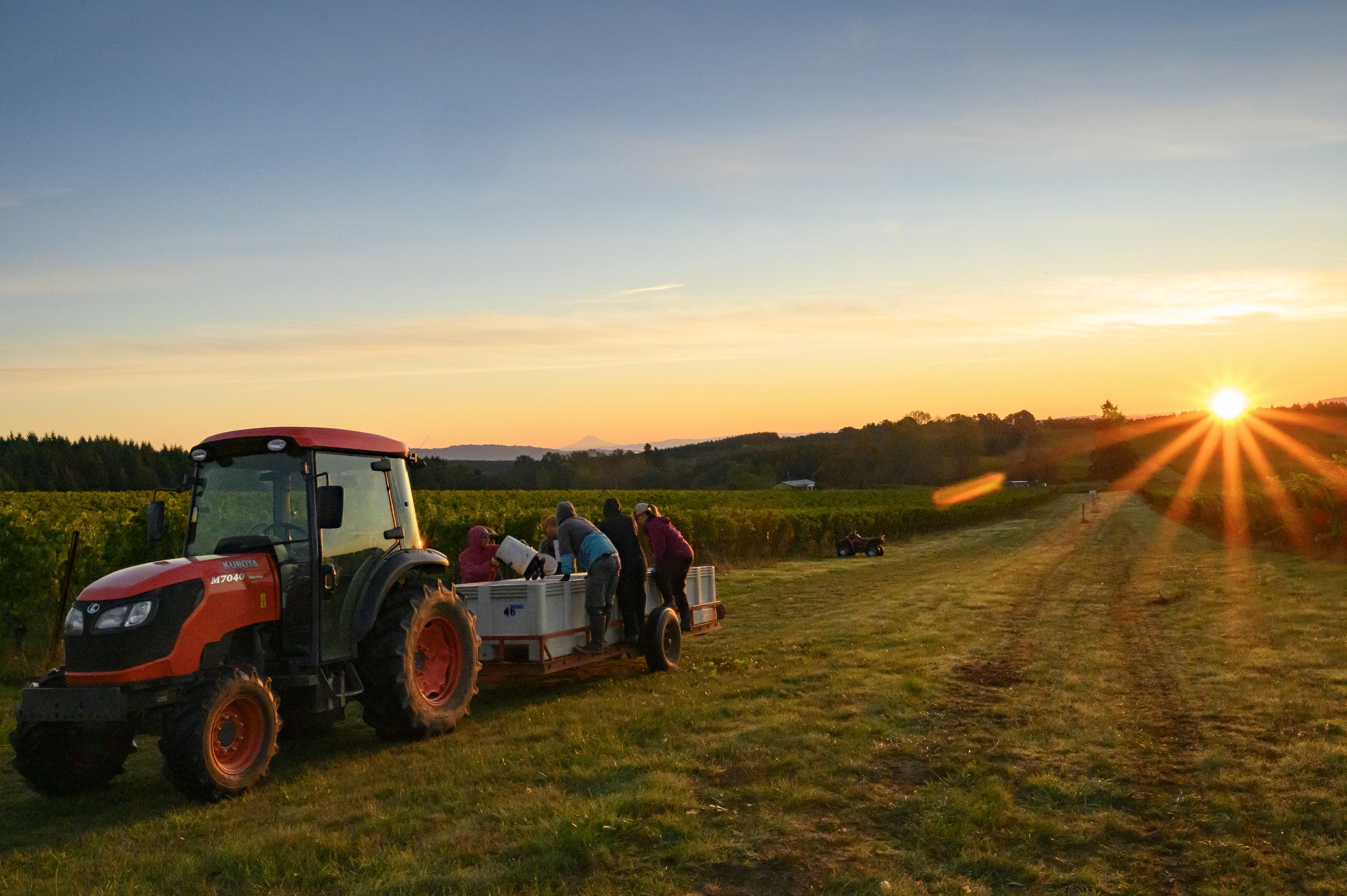ORGANIC AND DRY FARMING
Our wines bear an unmistakable connection to the earth—and not only because grapes grow in dirt. Air, water, soil, animals—entire ecosystems—make our wines what they are. Knowing this, we employ organic practices throughout our business. Whether we’re dry-farming grapes from our Organically Certified estate vineyards or from our LIVE and Salmon Safe and Organic certified sites, hosting a winemaker dinner made from organic ingredients grown nearby, or building our winery and tasting room with a low-emission footprint combining recycled steel and cedar salvaged from century year old barns in the Willamette Valley, we search for ways to work in harmony with the natural environment. We dry farm our 60 acres of estate vineyards with our in house team. We believe that dry farming pro-acts the roots of the grapevine and strengthens their work to descend into the parent material of subsoil finding water, in the process creating incredible fruit character.
HONESTY OF SITE
We work diligently every year to ensure that our wines convey flavor profiles created by millions of years of geological evolution to those who drink them. From Jory (Volcanic) to Marine Sedimentary, soil type affects the fruit characteristics of the wine (red, blue, or black) as well as its spice, earth, and sweet or savory attributes. Elevation is also significant; vineyards at lower elevations produce more fruit-forward wines, while those at higher elevations provide a more mineral-driven result.
PURITY OF CLONES
Pommard, Wädenswil, Coury, Dijon 777, Dijon 943 and Dijon 115 are the primary clones Cody chooses to work with both for their transparent personalities and how they express Pinot noir. Each one can be bottled separately as clone-specific and can construct a complete wine: front palate, mid-palate, and finish. Clones are very important as they are the vocabulary of the vineyard’s language. Each clone has a unique flavor profile that’s rooted in its DNA and further individualized by its growing site.
TENDING WHAT WE ARE GIVEN
Winemaking at Purple Hands is low-intervention from start to finish. Fruit arrives on the crush pad for sorting, is then transitioned to rustic orchard totes and barrels for primary fermentation and “raised” in hand-made vessels from our favorite European forests. Observing the wine closely during transformation, we seek the secret in every lot, in every vintage.








